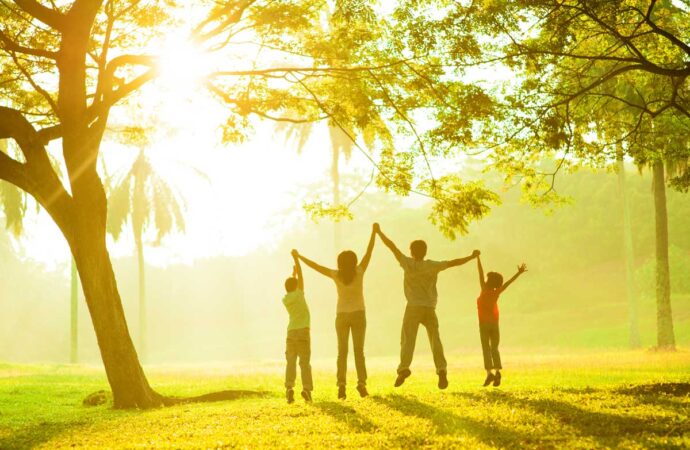The family is a good place to start building good habits and multiplying our positive impact when going green.
When people today talk of a sustainable lifestyle, it is common to hear many of them cite examples of practices that were passed down to them from their families. My mother’s advice never to buy new dishcloths is so ingrained in me that I’ve modelled my cleaning practices on hers, and upcycled old clothing and sheets into cleaning rags.
The family is the smallest and most proximate unit of influence we have. The impact of choices and behaviour is multiplied when every member of the family adopts them, and their impact rises when they are passed down over generations.
That’s why when going green, the family is not just an excellent place to start, but also to maximise our positive impact through the inter-generational transfer of behaviour and consolidation of savings.
With some work, it is possible to teach young children understand the value of saving the environment. Teens, too, can be motivated to change their behaviour and understand the impact they are making. Here are a few tips to get different age groups to do their bit to widen the impact you make as you embrace a sustainable lifestyle.
Kids
Daily family life is the most important classroom for young children. Since they learn a lot by watching and mimicking the grown-up family members, the behaviour they see and learn early on will lay the foundation for their own environmental attitudes and habits later on. Children are keen observers and will notice whether you act upon the lessons you impart to them.
Do you turn off the lights when you leave a room and clean your plate at every meal? They are also quick to pick up on lapses and be confused by them and so it is important to be consistent in your choices and behaviour around them.
Make use of children’s intrinsic curiosity, high energy and love for the natural world to get them started on sustainable habits early in life. From involving them in segregating and composting waste to gardening with kitchen scraps and making upcycled crafts, there are endless opportunities to get kids on board the green bandwagon and reinforce positive behaviour.
Teens
Attempts to inculcate green behaviour in teens and young adults are often at odds with the behaviours reinforced by peer pressure, the desire to feel a connection to others and develop a sense of personal identity.
But this age group also usually has favourable attitudes towards environmental protection. What they need is a bit of a parental push to motivate them into action – whether it is with their frequency of shopping for clothes or the sort of packaged food they use.
It may help to watch a few environmental documentaries with your teen and set aside some time for post-movie discussions and debates.
Encourage your teen to follow current environmental issues in the news and join environmental movements which provide opportunities for deeper learning.
You could also take up a fun challenge or activity together, such as going meat-free for a month or avoiding single-use plastic, sharing your goals and accomplishments on your social media pages.
It is important to note that, because of their exposure to social media and increased socialization, the transfer of green behaviour can often be reversed – with teens re-educating adults or introducing them to new products or technology that can have a positive impact on the environment.
Adults
As the engines of the household, the earning adults overtly and covertly influence the behaviour of the rest of the family. They have the power to make decisions that can reduce the carbon footprint of the whole family.
They can choose from a number of green causes to invest in. From buying chemical-free food, personal care products and cleaning supplies, giving up single-use plastic, installing rainwater harvesting and solar energy systems, carpooling or using public transport, the choices are endless. A softer form of influence would be through the culture and behaviour they encourage at home through daily habits.
The Elderly Members of a Family
This generation comes hard-wired with a few sustainable habits. It’s common to notice in them a general mindfulness towards water, food and other resources, with behaviour such as upcycling, repurposing and frugality coming naturally. If you share your home with older people, encourage them to participate in the shift your family’s making towards a greener lifestyle.
Going green as a family provides a great opportunity to do things together, from planning and preparing to transform your home and habits to altering your budget to suit your new lifestyle.
An eco-friendly lifestyle enhances the quality of your life as a family, allows you to pursue new activities together and imparts important like skills. Tangibly, it offers a chance to cut back on your energy and water footprints, reduce waste, embrace healthier habits and save money on the things you don’t need.


























Leave a Comment
Your email address will not be published. Required fields are marked with *